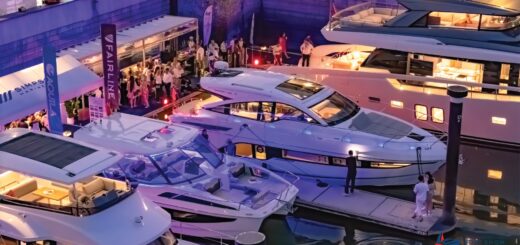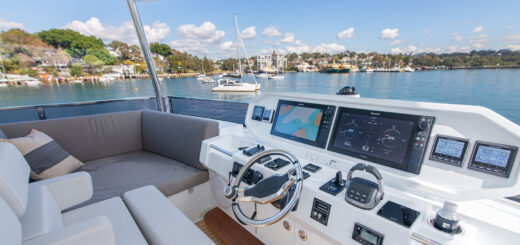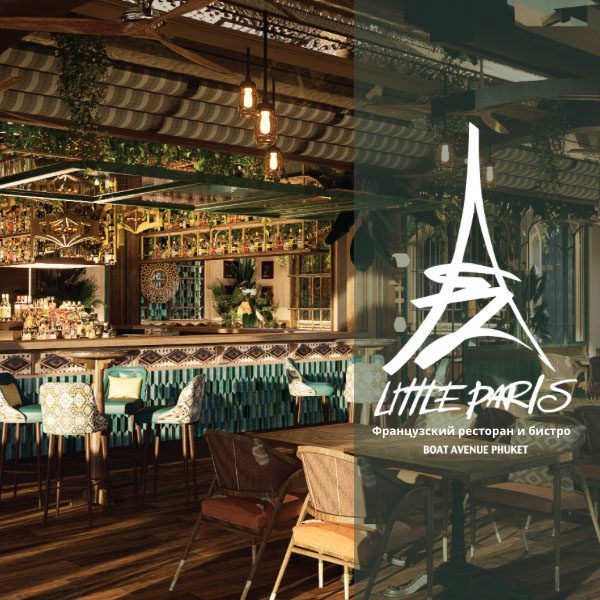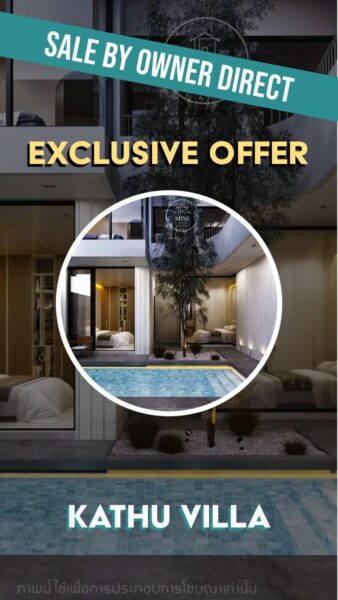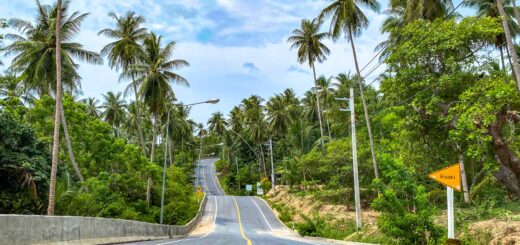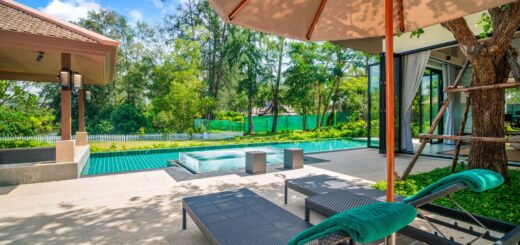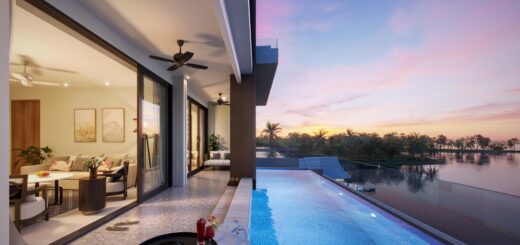This post is also available in:
![]() Français
Français ![]() Русский
Русский
“Take a look,” Liberto says, handing me an old photocopy. “That’s me, twenty-two years ago.”
In the faded black-and-white photo, I see a man with a youthful face, a broad smile, and bright, passionate eyes. Yet Liberto was already forty-seven when the picture was taken. It’s hard to believe those eyes still held so much innocence after fourteen long years in the Saudi desert, building palaces and nuclear shelters for the royal family.
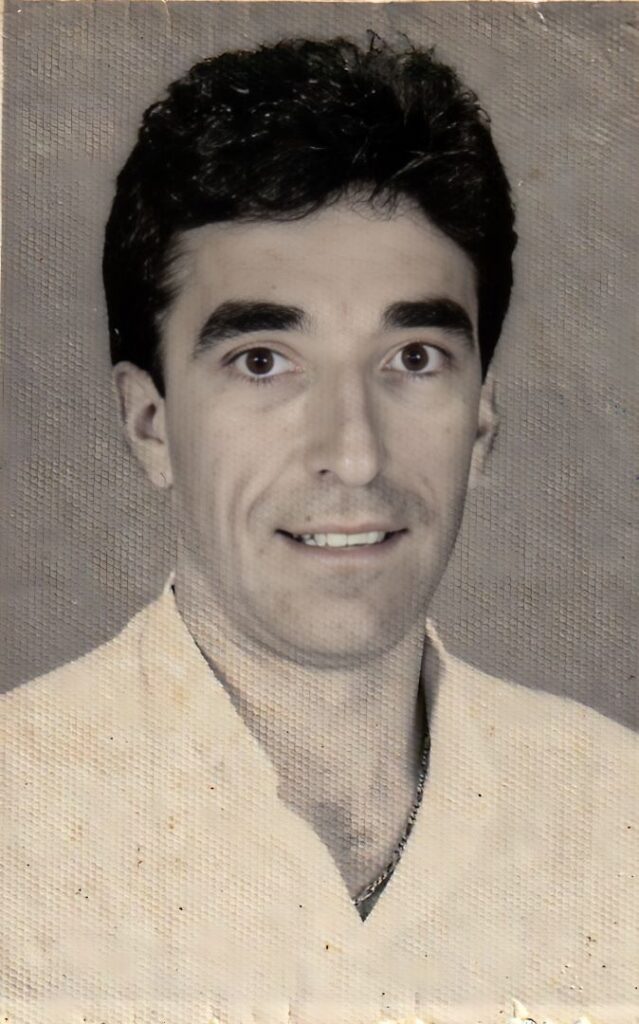
The picture had accompanied an article in Gavroche , where journalist Hélène Vissière interviewed Liberto, just as he was breaking into the Southeast Asian construction market. Was it Thailand, I wonder, that had brought such light back to his eyes?
“I first came to Thailand in the early 1980s,” he recalls, “hunting for workers for my construction sites in Saudi Arabia. Back then, the majority of laborers in the Gulf came from Thailand.”
He pauses, as if transported back in time…
“As soon as I got off the plane, all I saw were smiles. People here showed a kindness and patience I’d never experienced, especially toward a ‘farang’ like me, who couldn’t speak their language. Hardly anyone spoke English back then, let alone French. But somehow, with enough smiles and gestures, we managed to understand each other. Thailand in those days really was a paradise—so different from anything I’d ever known.”
In 1984, Liberto took a leap of faith. He moved to his wife’s homeland, Thailand. While still overseeing his projects in Saudi Arabia, he spent two weeks every couple of months here, recharging his spirit among loved ones.
Seven years later, he laid the foundations for his first company in Bangkok: Indo Construction & Engineering. Forty loyal Thai workers came with him from Saudi Arabia, joined by expat friends from the Emirates who had settled in the capital. On June 2, 1994, weary of war and the rise of extremism in the Middle East, Liberto finally left Saudi Arabia for good.
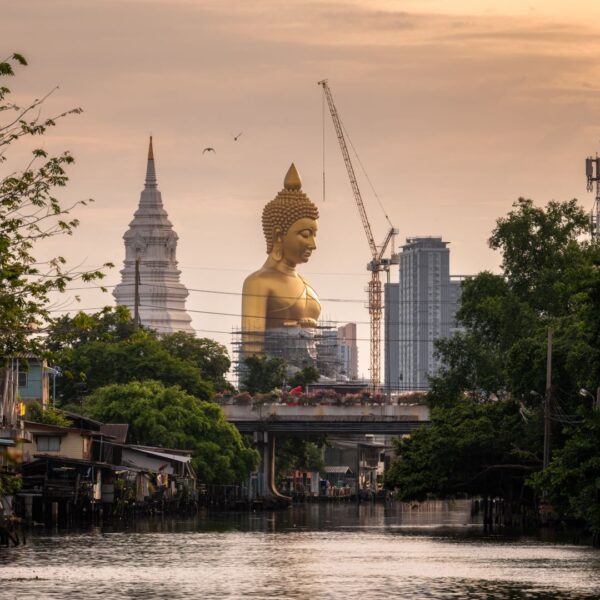
Liberto in Saudi Arabia in the 80's
Twenty-two years later, Liberto Heraz-Gomez is a respected figure in Phuket. He leads three construction companies, each with its own specialty, but hasn’t let success go to his head.
“I grew up in a family of laborers. My father and brother were bricklayers, so I just followed in their footsteps. As a kid, ten-hour workdays were normal. As an adult, it got even tougher. I know the value of hard work, what it takes.”
He smiles, his voice steady…
“And I know who really knows how to work. Take the Thai laborers who were with me in Saudi, and who are still with me here: sometimes you might think they’re not doing much, or that they’re too slow. But try keeping up with them for a day.
You wouldn’t last! They keep going, rain or shine, under that unforgiving sun. The truth is, all those towering buildings in Bangkok, those palaces in Arabia—they owe just as much to Thai hands as to architects or engineers in air-conditioned offices. Most of these guys come from Isaan, but nowadays you’ll also find many Burmese, Laotian, or Cambodian workers. Even so, Thai labor remains vital, and it’s what keeps this country moving forward.”
Today, his three companies employ several hundred people.
The original core group of forty workers has grown—brothers, cousins, wives, children have all joined in. They’ve been joined by skilled professionals—architects, designers, engineers, graphic artists. Together, they form a big family, thriving on teamwork and good cheer.
“My first company, I.C.E., was founded in 1991,” explains Liberto. “We handle everything needed to plan a building project, here or for export. That means we cover every detail: architecture, plans, material specs, a full brief. Clients can then take the package and build wherever they like.
The second, Indo Construction Phuket, was started in 2005, and manages all the projects right here on the island.
And the youngest, 3LH, is just two years old—dedicated to design and furnishing.”
“So your companies now handle every stage, from the drawing board to handing over the keys,” I point out. “Is that about keeping control, avoiding outside dependency?”
“I want to keep disruptions to a minimum, and keep projects running on schedule. If a job runs late, the daily penalties can be brutal. If that ever happened, I’d have only myself to blame.”
“Is this your own way of putting King Bhumibol’s self-sufficiency philosophy into practice?”
Liberto’s expression grows thoughtful.
“King Bhumibol was a builder-king. He shaped Thailand into what it is today.
Before him, there were no major dams, no reservoirs, no extensive irrigation canals linking the entire country. He always believed that his people should be able to feed themselves—to be as independent from foreign markets as possible. And when you look at what’s happened in some neighboring countries, you realize just how right he was.”
He shows me the black ribbon pinned to his sleeve.
“That’s my symbol of mourning,” he explains quietly. “I have huge respect for King Bhumibol. In a way, it’s thanks to his wisdom and vision that I could settle here and build a life. So yes, maybe the way I run my business is inspired by his philosophy.”
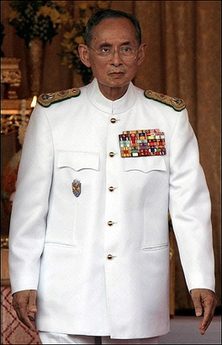
H.M. Le Roi
Bhumibol Adulyadej
5/12/1927 – 13/10/2016
I ask him: If he could do it all over again—go back forty years—what would he do differently?
Liberto reflects, a gentle smile on his lips…
“I wouldn’t change much,” he confides. “Maybe I’d try to move to Thailand before I turned thirty. That’s one of my few regrets, arriving here a little late. Another regret is not being around to watch my first four children grow up. I was always out on site, seven days a week, from dawn to late at night. In this business, family life is almost impossible.”
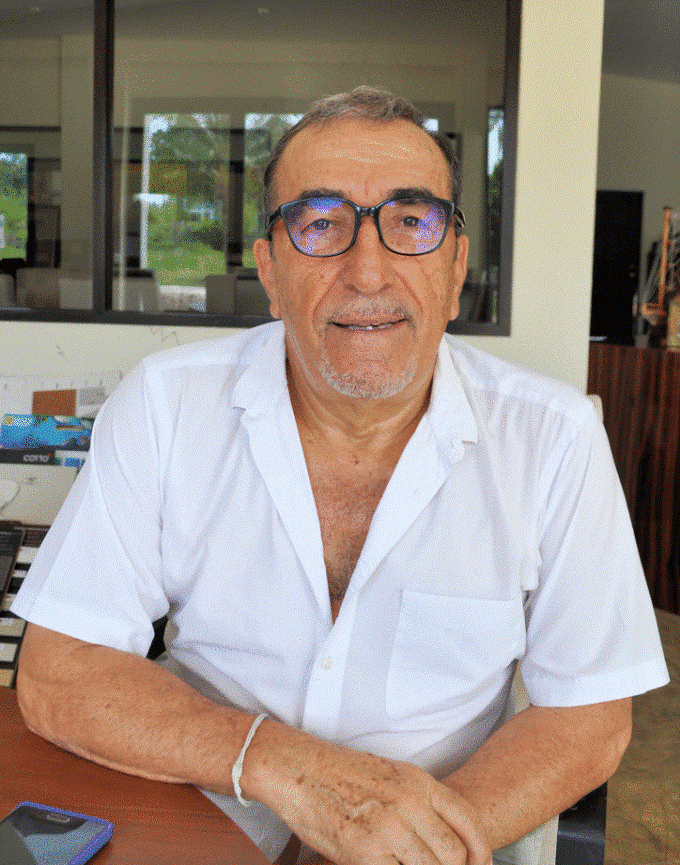
He sits up a little straighter, his gaze brightening.
“But I got a second chance. With my youngest, my fifth child, I’m finally able to enjoy fatherhood. These days, I start work later and finish earlier, so I can take him to school. We talk a lot—I try to teach him about life, about the real value of money, so he doesn’t grow up imagining that everything just falls into his lap. He already knows that without work, you’re nothing.”
Looking out the window, you can see the bustle of daily life: workers’ homes and workshops clustered around the house.
“Every day, my son sees the teams at work, building furniture, heading out to jobs, coming back in the evening exhausted, but always with a smile. That’s the best kind of education there is.”
He pauses, absent-mindedly tracing a callused hand over the table, then says quietly, but with the unwavering conviction of a builder:
“A life isn’t just something you dream about. You build it, brick by brick, together with the people around you.”







